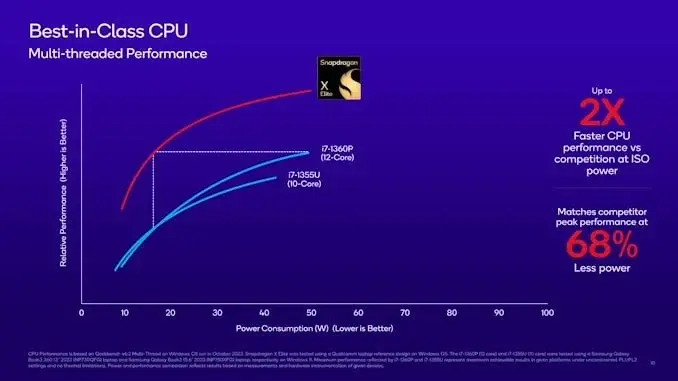Qualcomm recently showcased impressive performance metrics of its upcoming Snapdragon X Elite chip, suggesting that Windows-on-Arm laptops empowered by this chip will surpass Intel processors and Apple's M series chips in performance. The specifics of the tests conducted were not disclosed, and the comparison data provided was not independently verified.
Lack of Transparency
The company has been criticized for the lack of transparency in disclosing the details of the benchmark tests conducted on the Snapdragon X Elite chip. Reports suggest that Qualcomm's benchmark results are challenging to replicate, even by top-tier OEM developers, casting doubts on the accuracy of the performance comparisons with competitors.
Discrepancies in Performance
Upon receiving the Snapdragon X series chip, device manufacturers failed to achieve performance levels close to what Qualcomm had initially presented. OEMs struggled to reach even 50% of the claimed performance figures, with Qualcomm engineers attributing the shortfall to suboptimal Windows-on-Arm optimization and inadequate device cooling solutions. Despite efforts to enhance cooling, OEMs were unable to significantly improve the chip's performance, leading to unfavorable comparisons with Intel Celeron chips.
Future Outlook
While concerns have been raised regarding the testing methodologies employed by Qualcomm, the alignment of the Snapdragon X Elite chips with devices produced by the same OEMs running Windows could potentially mitigate these discrepancies. Qualcomm has yet to address detailed technical inquiries about the Snapdragon X series, with promises of comprehensive technical briefings prior to the anticipated mid-2024 launch.
Qualcomm has also introduced the Snapdragon X Plus, a more cost-effective variant of the Snapdragon X Elite chip. However, the announcement primarily focused on potential camera features enabled by the SoC rather than offering in-depth technical specifications, deviating from the initial assurances provided by the company.


Leave a Reply